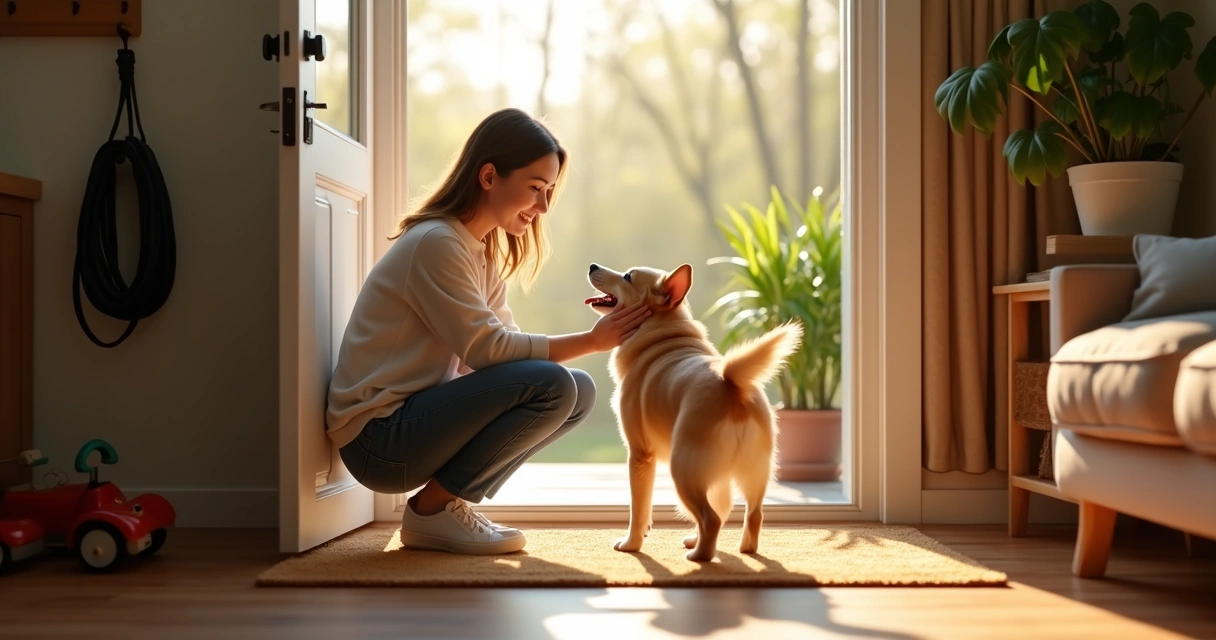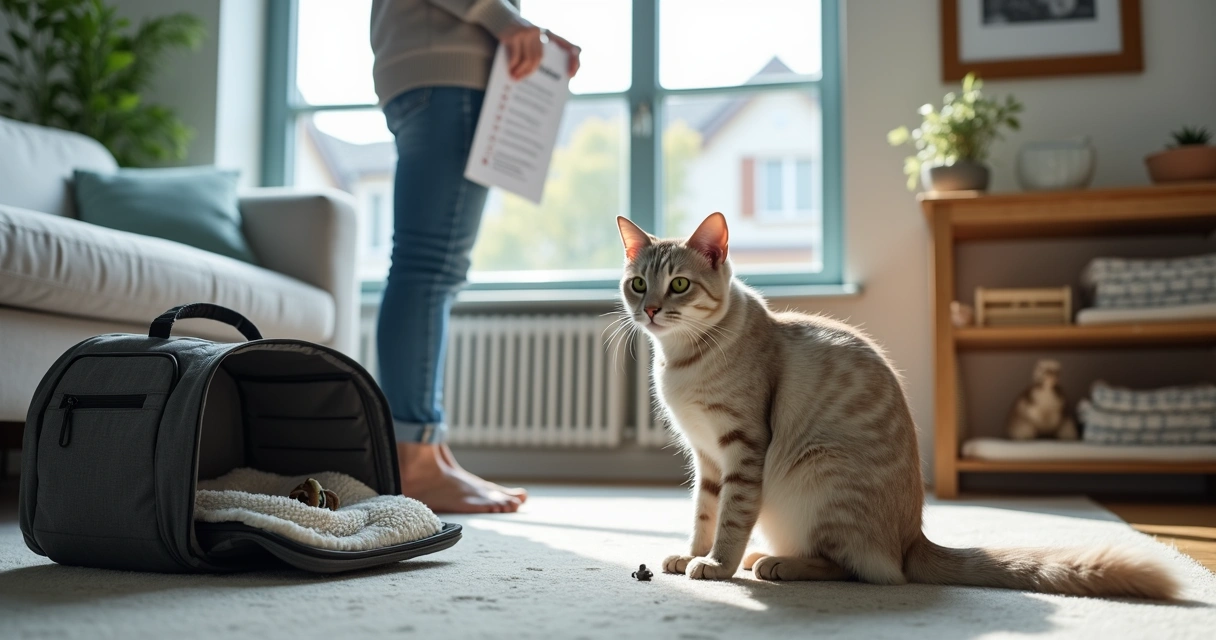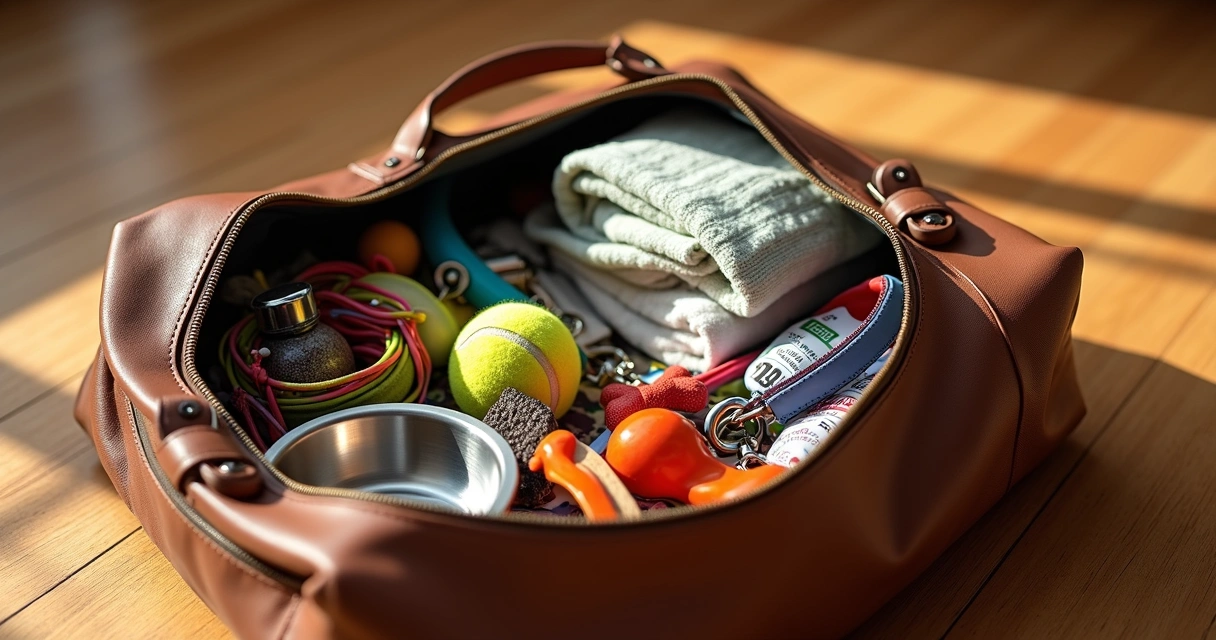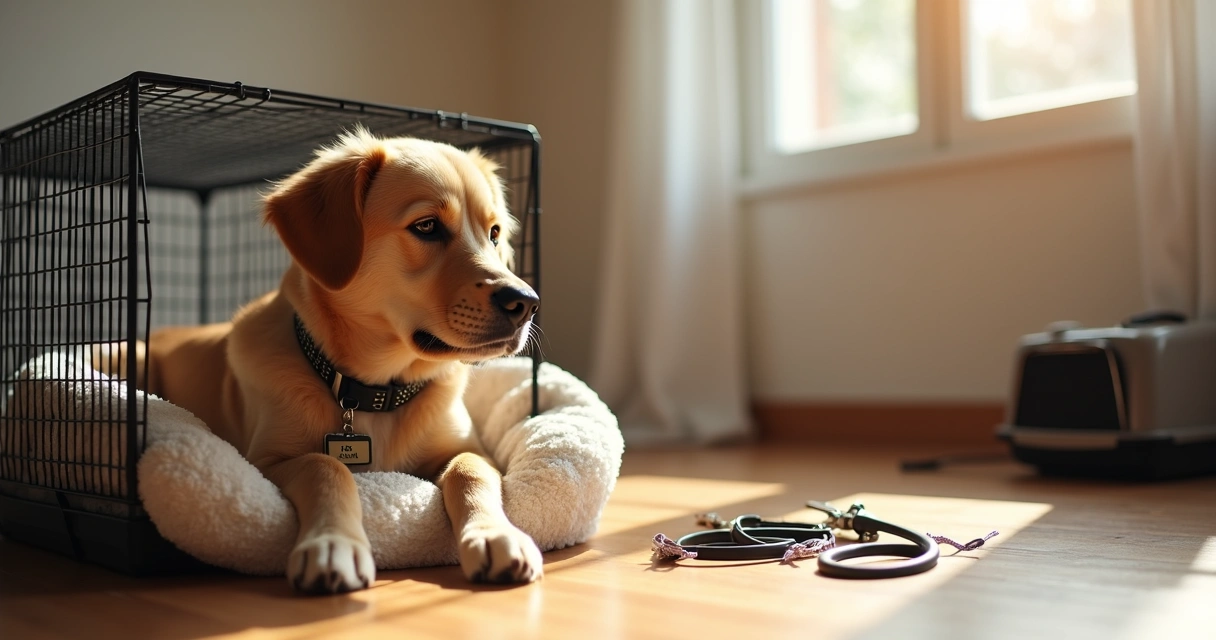Coming home after a stay at a boarding facility can be a strange and sometimes confusing time for your pet. Whether it was just a few nights or a couple of weeks, the sights, smells, and sounds of home can all feel different after boarding. At Dogtown in Gloucester, our team knows how much you care about your furry family members. Our goal is to make every homecoming smooth, happy, and filled with wagging tails or gentle purrs.
This guide will walk you through seven simple steps to help your dog or cat settle back in. Each step comes with gentle advice, a little science, and—honestly—a lot of heart.
- Start with calm hellos
Walking through the front door with your pet after boarding can feel like a small reunion. Some pets leap into your arms. Others hesitate, sniff, or hang back. The trick is to keep things simple.
Let your pet come to you at their own pace.
Try to greet your pet quietly. Speak softly, kneel or sit down, and offer a yummy treat or their favorite toy. If you’ve been away for several days, resist the urge to crowd them or invite guests immediately. According to Cornell University College of Veterinary Medicine, a low-key reunion in a familiar space helps ease pets back into normal life and eases the excitement or worry they may feel.
- Give space and familiar comforts
Even the friendliest dogs and cats sometimes act differently after coming home from boarding. Maybe your cat hides under the bed or your dog paces at the door. The best thing you can do is let them have a space to retreat.
- Place their bed, blankets, or crate somewhere quiet.
- Give access to familiar toys, chewies, or scratching posts.
- For cats, sprinkle a little catnip or use calming pheromones, as The Indoor Pet Initiative at Ohio State University suggests.
Home feels good when it smells like you and your favorite things.
- Resume your normal routine—mostly
Pets thrive on predictability. The everyday rhythm of meals, walks, treats, playtime, and even quiet naps helps them feel at peace. After a visit to a place like Dogtown, try to bring back your regular schedule with the same meal times, morning cuddles, and afternoon outings. If your work or daily life has changed recently, try to make small shifts rather than big, sudden ones. As NC State News reports, gradual changes help pets manage their excitement and worries—and can make the entire household feel calmer.
- Watch for signs of stress (and give extra love)
A few days after your pet comes home, pay a little extra attention to their body language. Do they hide, whine, pace, refuse food, or seem suddenly clingier? Cornell’s canine health experts note that these signs can be a normal reaction to new (or even old) environments after time away. Provide lots of reassurance, gentle pets, and quiet together time. Some pets need a few hours. Others take a few days.
If your pet seems especially unhappy or withdrawn, keep an eye out. A little love—and a little patience—goes a long way.
- Handle food, water, and bathroom breaks gently
It may sound odd, but it’s not unusual for pets to have a slight change in appetite or bathroom habits after boarding. Rutgers 4‑H Animal Science advises that some dogs (and yes, even cats) skip meals or have a touch of tummy upset after leaving a boarding facility. Offer their favorite foods, avoid new treats for now, and give bathroom breaks more often for a day or two. The same goes for shy cats—keep the litter box clean and in a familiar spot.
- Fresh water always within reach
- Don’t panic at one missed meal—most pets bounce back fast
Gentle routines bring bodies (and hearts) back to normal.
- Encourage safe play and exercise
Your dog or cat may be tired from their stay at Dogtown’s supervised daycare, but movement helps them feel settled. Short walks, gentle play, and familiar games help restore their confidence and routine. For dogs, this could be a slow stroll around your block. For cats, it may just be wand toys or some solo play with a catnip mouse. Don’t pressure—they’ll ask for more as they feel ready.
If your furry friend gets a burst of energy (the so-called “zoomies”), enjoy the show. If they’d rather nap, that’s fine too.
- Ease into alone time again
When pets return home, separation from their boarding friends—or even from you if you spent a few extra days together—can feel lonely. Oklahoma State University recommends building up alone time slowly.
- Leave the room for short periods, then gradually increase time away.
- Play soft music or leave a shirt with your scent where your pet sleeps.
- Offer a favorite chew or puzzle toy for distraction.
If your dog is enrolled in personalized training or your cat could benefit from soothing grooming sessions, Dogtown offers extra support for those gentle transitions.

Tips for a smooth transition at Dogtown
If you use Dogtown’s day camp, you already know our staff’s daily feedback helps you prepare for a seamless return home. Ask your pet’s caregiver for insights about their mood, friends, or favorite activities at boarding. This information can help you create a smooth homecoming experience customized for your dog or cat.

Coming home is a big deal for pets, but with gentle steps and a bit of extra awareness, that transition can be one of peace rather than stress. Whether you choose Dogtown for your dog or cat’s next stay, or need help with grooming or ongoing training support, we’re always ready with expert care and a true love for animals.
Ready to discover a new routine for your pet—one filled with joy, trust, and thoughtful homecomings? Schedule an assessment or visit Dogtown to experience how our team can help your pet feel truly at home, every time.
Frequently asked questions
How to help my pet adjust after boarding?
Start with quiet reunions and give your pet space to approach you. Use familiar beds, toys, and routines to help them feel secure. Follow a predictable schedule for meals and play. Cornell University College of Veterinary Medicine recommends a calm home environment to lower stress. If your pet seems unsure, try gentle play and keep guests away for the first day or two.
What signs show my pet is stressed?
Stressed pets might hide, refuse food, pant, pace, meow or bark more than usual, or cling to you. Some cats may over-groom or avoid the litter box. Dogs can whine, become destructive, or want more cuddles. Watch for changes in behavior, bathroom habits, or energy. Occasional stress is common, but if it lasts more than a few days, check in with your vet.
How long to transition pets after boarding?
Each pet is different, but most adjust within a day or two. Some dogs and cats might take longer—up to a week—especially if they are shy or if their routine has changed a lot. Creating a consistent schedule, using familiar items, and being patient helps. Gradual transitions and lots of encouragement are key.
What if my pet refuses to eat?
A pet skipping one or two meals after coming home is common. Continue to offer favorite food and treats, and keep the eating area stress-free. According to Rutgers 4‑H Animal Science, some pets eat less after travel or boarding. If your pet refuses food for more than 48 hours, contact your veterinarian.
When should I call a vet post-boarding?
Call your vet if your pet shows signs of sickness like vomiting, diarrhea, coughing, trouble urinating, or if they hide and refuse food for more than two days. Also, call if you notice new or worsening behavior issues. Most pets recover from boarding quickly, but it’s always best to be cautious if you’re worried.





